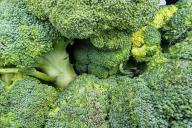In summer, lots of people don't feel really hungry because of the weather, but it often changes in winter.
To stay healthy and full of energy, you should adjust your diet slightly, so it can suit your needs better.
Here are some tips on what you can do.
Warm and Hearty Foods
In the winter, we naturally crave warmer and heartier foods.
Opt for nourishing dishes like hot soups, stews, and chili.

These meals provide warmth and comfort on chilly days.
More Vegetables
Continue to eat a variety of vegetables, even during the winter months.
You can prepare roasted root vegetables, steamed greens, or hearty salads.
Seasonal vegetables like carrots, broccoli, and cauliflower are great choices.
Seasonal Fruits
While some fruits are not in season during winter, you can still enjoy seasonal options like oranges, apples, and pears.
They are not only tasty but also rich in vitamins to help ward off winter illnesses.
Hydration is Key
In colder weather, it's easy to forget to drink enough water. However, staying hydrated is crucial.
Aim to drink water, herbal teas, and warm beverages to keep your body properly hydrated.
Fiber-Rich Foods
Foods high in fiber, such as whole grains, legumes, and beans, are excellent choices for winter.
They keep you feeling full and provide sustained energy throughout the day.
Vitamin D Sources
Winter often means less exposure to sunlight, which can lead to lower vitamin D levels.
Incorporate foods like fortified cereals, dairy products, and fatty fish (like salmon and mackerel) into your diet to ensure you get enough vitamin D.
Limit Sugary Treats
Winter can tempt us with sugary snacks and desserts. While it's okay to indulge occasionally, it's essential to limit them.
Too much sugar can lead to energy spikes and crashes.









